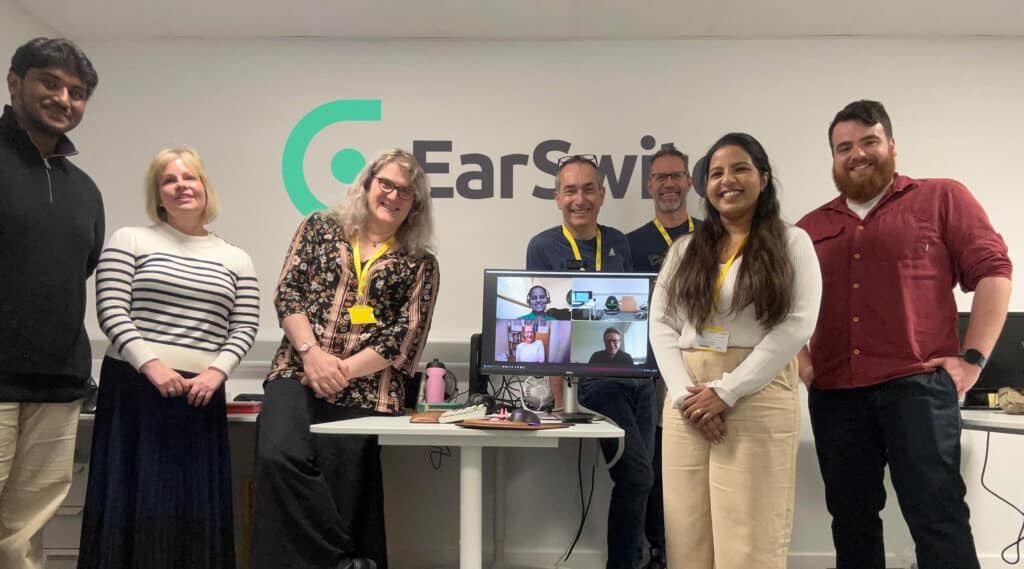EarSwitch was founded by Nick Gompertz who was an NHS doctor for 30 years (21 as a GP). During his time Nick treated people with MND; a condition for that for some stops all ability to communicate with the outside world.
Thinking there must be a better way to treat these patients, Nick subsequently came across a children’s documentary about a 13-year-old Jonathan Bryan, who is living with cerebral palsy and wrote a book just using his eyes to glance at letters stuck on a Perspex board, which is very slow.
Jonathan inspired Nick to create a more efficient communication device for people with MND and severe cerebral palsy. He developed a sensor for the ear that is controlled by muscle movements, and the idea for EarSwitch began to formulate.
While developing the technology with support from the University of Bath and funding from the National Institute for Health & Care Research (NIHR), Nick discovered you can measure heart rate, breathing rate, oxygen levels and blood pressure biomarkers from the ear canal using the same device.
This discovery led to the development of EarMetrics – ‘a suite of in-ear biometrics hardware and technology that aims to provide the new global standard of medical monitoring’.
Why healthcare needs to be more inclusive
The importance of this use for the product became clear during the pandemic. During this time, people with dark skin were at higher risk of losing their lives to Covid19.
This may have been because their oxygen level was being measured with an oximeter, which works by shining a light through the skin. However, this process doesn’t work as well for people with darker skin, so many may have shown inaccurate oxygen readings.
EarMetrics aims to overcome these barriers because the site it targets (the inner ear canal) is the same colour for all, making it more likely to be a racially inclusive and agnostic product. As well as making services more inclusive, EarMetrics also expects to alleviate time and resource pressures in hospitals and GPs as one singular device hopes to measure all a patients’ basic metrics quickly and efficiently.
This approach led to the team being accepted onto The Innovative Devices Access Pathway (IDAP) a UK Government pilot to allow UK patients to have faster access to innovative medical technologies such as EarMetrics Oximeter.
EarMetrics Oximeter is starting clinical trials on its route to ensure that it is as accurate as EarSwitch hopes. The Communication EarSwitch for people with conditions such as motor neurone disease clinical trial is open now.
Collaborate to innovate
Nick and his co-founder Garry moved to Future Space in early 2023 just before they started to expand their team, after Nick had completed the Launch Space Accelerator. They moved here to attract excellent talent to an attractive location, to be closer to other tech companies and for the collaboration opportunities with UWE – including the Health Tech Hub and Bristol Robotics Lab.
EarSwitch have now grown to a team of 13 and have been previously funded by NIHR, UKRI (Biomedical Catalyst and Healthy Aging Grants), Britbots, Newable and Praetura Ventures.

